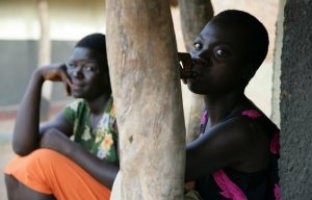Do something! But what?

The whole Kony-video thing seems to be over. Most of the
millions of viewers watched the half-hour film about Joseph
Kony right after Invisible Children released it. The group's action
kits are sold out. Lots of thoughtful criticism has been written and widely shared.
Yet I keep coming back to it, because these
conversations have revolved around questions I wrestle with regularly as a
missionary in Nicaragua.
The Kony video went viral in part because young
people are open to being moved by compassion for others. I have to celebrate
that--from my vantage point, I'm always wishing that many more people with
disposable income cared about the needs of people in other parts of the world.
But how do you inspire people to care? What story
do you tell?
I'm excited about the work I get to do--most of it
in theological education--and the other things this small Nicaraguan church is
doing to improve the lives of its members and their communities. I want people
to know about it. So I share stories, working hard to do so in a way that is
respectful of the people involved while still highlighting the ways that
material support can help.
But once people are inspired to help, what kind of
action makes a positive difference? The Kony video pushes an oversimplified
picture of a very complicated situation. The action it calls for boils down to
this: pushing the Ugandan military to intervene, and perhaps equipping it with
even more U.S. guns than it already has. And the video's call to action may
well serve the filmmakers themselves most of all.
In short, "just doing something" can sometimes be
worse than doing nothing. So how can we know what, specifically, to do?
For the mission and development agencies of the
mainline churches, the answer to countless varieties of this question is the
same: build relationships with local partners.
The people living amid armed conflicts, clean
water shortages and inadequate health care know the full story. They know what
solutions will work in their context; they know what they need.
The mainline groups have come to trust their local
partners, realizing that in matters practical as well as spiritual, we have a
great deal to learn from sisters and brothers around the world. These agencies
have done the hard work of naming their historical role as missionaries
complicit in colonialism, their role promoting the story of a white savior
helping needy dark-skinned people (a story that comes across strongly in the
Kony video).
The Presbyterian church now calls its personnel
"mission co-workers" rather than "missionaries." Global
Ministries --a joint effort of the Disciples of Christ and the United Church of
Christ, through which I serve in Nicaragua--describes the work of missionaries
as "accompaniment," walking with partner churches in a process of
mutual give and take rather than bringing them answers.
In a way, these mainline agencies are the opposite
of Invisible Children. They build long-term relationships with local churches
and organizations; they ask the affected communities to define their needs,
rather than imposing solutions. (This method of operation, by the way, makes
for remarkably low overhead.) And they don't usually sell bracelets or
t-shirts.
In fact, church members might not even know they
are supporting this great work. The bulk of Global Ministries' support comes
from Disciples and UCC general funds. They work very hard to share their
partners' stories with church members, but they will never have the budget or
expertise at their disposal that Invisible Children does.
The New Life Program in Uganda, which you can support through the
United Methodist church, does not have a very sophisticated or inspiring web
presence. But it is a way to provide young women and girls abducted by Kony and
the Lord's Resistance Army with exactly what they need: support to rebuild
their lives.
These mainline groups have been quietly,
faithfully at this work for decades. They've been doing their research,
learning from local partners and putting resources at these partners' disposal.
Maybe it's been a little too quiet;
maybe we can learn something about how to inspire people to take action.
But we also have something to teach about taking
action responsibly.





